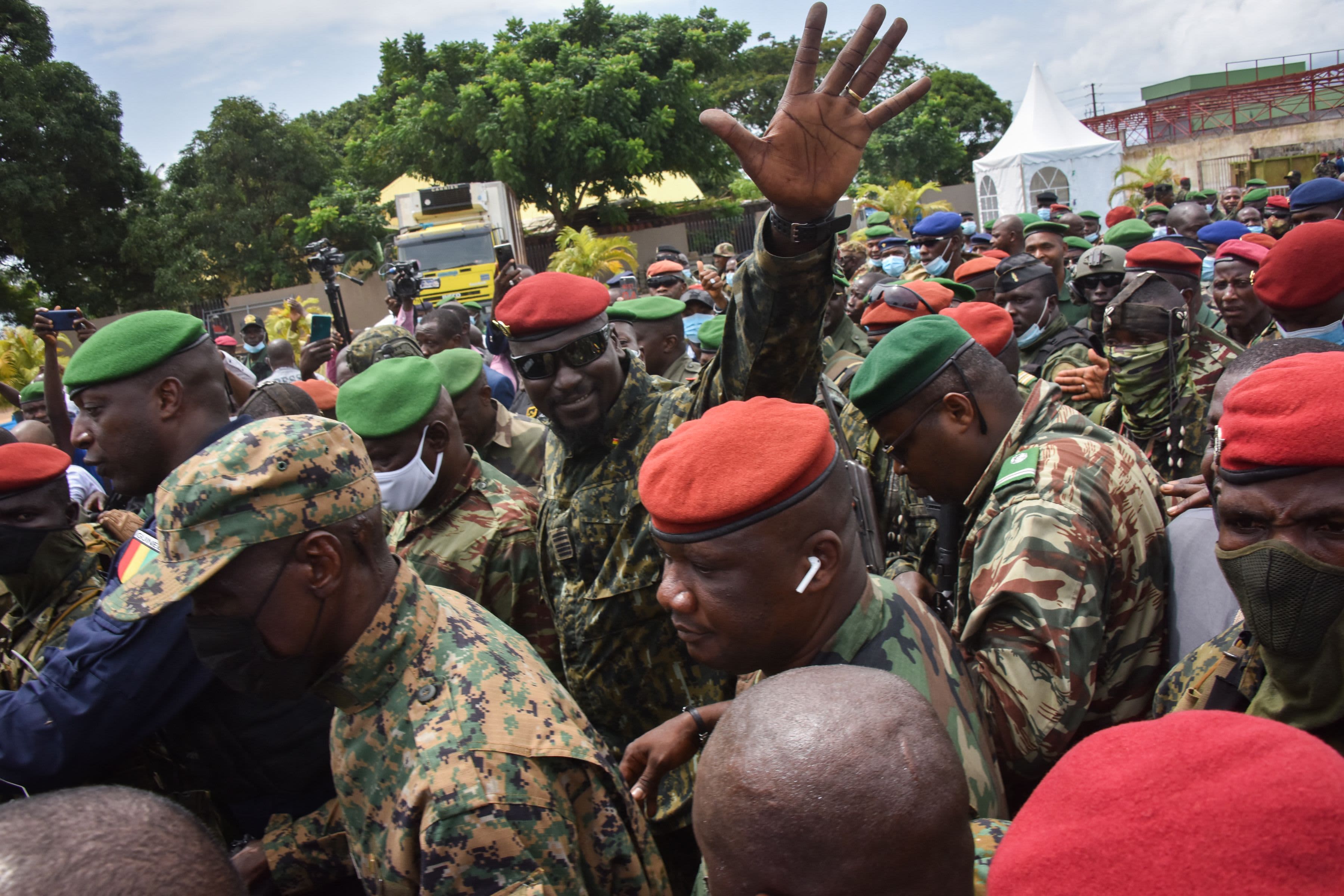
A military junta claimed to have seized control in the West African country of Guinea and detained President Alpha Conde, casting uncertainty over key bauxite and iron ore supplies.
The coup, carried out on Sunday by an elite special forces unit led by 41-year-old Col. Mamady Doumbouya, is the latest in a series of power grabs in the region over the past year, including in nearby Mali and Chad.
Doumbouya has claimed the army was forced into action amid rampant corruption, human rights abuses and economic mismanagement under Conde, but the move has been condemned by the U.N., the African Union and regional body ECOWAS.
The elite unit on Monday allowed travel to resume through checkpoints in the capital of Conakry, barred government officials from foreign travel and lifted a curfew in mining areas
What's more, it has imperiled minerals and mining endeavors which are crucial to the country's economy and global supply chains, according to experts.
Iron ore
Guinea's 110-kilometer Simandou range hosts one of the largest untapped iron ore deposits in the world, containing more than 8.6 billion tons of ore with an average 65% iron content, according to the country's National Institute of Statistics.
Simandou is situated in the remote southeastern interior of the country, a vast distance from Conakry and the western coastline that must be reached to access the global seaborne market for iron ore.
"The infrastructure demands of the project are consequently massive in scale, complexity and cost, larger on all measures than the bauxite export industry that has been established in the country in recent years," said Andrew Gadd, senior steel analyst at CRU Group.
"Geopolitical risk has been one of many hurdles hindering progress of Simandou up until now and the military coup that is now unfolding in the country marks a significant deterioration in the prospects for successful development of the deposit."
The Simandou project has been somewhat stagnant since its discovery in the 1990s as a result of political uncertainty, disputes over mining rights and cost concerns.
The project would require massive railway and port infrastructure in a nation which ranks 160th out of 186 countries in per capita GDP, according to the IMF. Investors have been reticent about taking a leap of faith amid the ongoing risk that material prices could nose-dive.
Despite recent progress on preparatory work, the project has yet to undergo a feasibility study.
"Sourcing the finances for Simandou has proved very difficult and the uncertainty generated by the current developments will challenge the commitment of interested parties," Gadd said.
Bauxite
Guinea has the world's largest reserves of bauxite, the globe's main source of aluminum. Prices of aluminum spiked to a 10-year high Monday on the London Metal Exchange amid fears of global supply disruption.
"For the country's booming mining sector, the situation could not come at a worse time. Miners now have little other option than to sit tight and await further clarity from the transitional authorities, but contract renegotiation or even expropriation cannot be discounted," said Eric Humphery-Smith, Africa analyst at risk intelligence company Verisk Maplecroft.
"The upshot will be major supply disruption for the global bauxite market, as operations will likely remain shuttered for the coming days and potentially weeks."
The Kremlin on Tuesday said it hoped the coup would not harm Russian business interests in Guinea, according to Reuters.
Russian aluminum giant Rusal has vowed to maintain its three bauxite mines and one alumina refinery in the country despite the political upheaval.
'Two steps backwards'
The coup has brought down the curtain on almost a decade of political stability in Guinea. Humphery-Smith said it will likely embolden officer corps throughout the region, meaning that "neither democrats nor autocrats will sleep easy."
Conde was accused in late 2020 of pushing through a constitutional amendment to secure a third term, a move that led to violent protests across the country.
Cellou Dalein Diallo, leader of the main opposition FNDC movement initially launched to oppose Conde running for a third term, supported the coup in a statement Monday, claiming the takeover "completes" the work of pro-democracy groups opposed to Condé's retention of power.
"While the feeling among many Guineans is jubilation, make no mistake that this is two steps backwards for both the country's democracy and economy. Recovering what until now was a stable and predictable operating environment is anything but a given," Humphery-Smith said.
The centralized transitional authority will be ill-equipped to respond to localized grievances, he suggested, potentially escalating political and social unrest when elections are eventually scheduled.
World - Latest - Google News
September 07, 2021 at 05:37PM
https://ift.tt/3l4oFCW
Guinea coup rattles iron ore and bauxite markets, stokes economic uncertainty - CNBC
World - Latest - Google News
https://ift.tt/2SeTG7d
Bagikan Berita Ini















0 Response to "Guinea coup rattles iron ore and bauxite markets, stokes economic uncertainty - CNBC"
Post a Comment